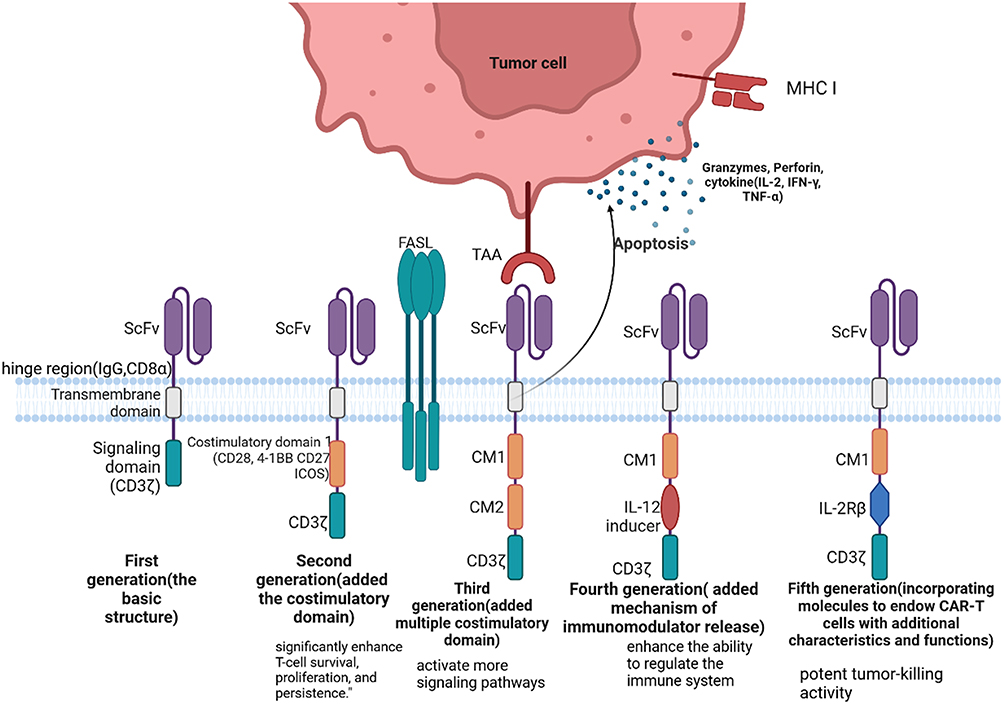Introduction
In recent years, CAR-T cell therapy has revolutionized the treatment of hematologic malignancies and some solid tumors. However, one of the major challenges limiting its effectiveness is the phenomenon of T cell exhaustion, characterized by the progressive loss of effector functions and reduced persistence of CAR-T cells. This exhaustion results from chronic antigen exposure and continuous stimulation, which ultimately impairs cytokine production and cytotoxic capabilities.
Recent studies reveal that epigenetic modifications—particularly DNA methylation and histone modifications—play critical roles in stabilizing this exhausted state and constitute major barriers to restoring T cell function. Therefore, targeting epigenetic mechanisms represents a promising therapeutic approach to reprogram T cells and improve their antitumor activity in CAR-T therapies.

Understanding T Cell Exhaustion and Its Impact on CAR-T Therapy
T cell exhaustion refers to a dysfunctional state of T cells following prolonged exposure to tumor antigens. Exhausted T cells exhibit reduced production of key cytokines such as interferon-gamma (IFN-γ) and granzyme B, alongside increased expression of inhibitory receptors including PD-1, LAG-3, and TIM-3.
In the context of CAR-T therapy, T cell exhaustion compromises the longevity and antitumor efficacy of infused CAR-T cells, often leading to disease relapse. Therefore, preventing or reversing T cell exhaustion is a critical goal for enhancing CAR-T treatment outcomes.
Epigenetic Mechanisms in Stabilizing T Cell Exhaustion
1. DNA Methylation
DNA methylation at CpG sites is a key epigenetic regulator of gene expression. Hyper-methylation of regulatory regions controlling genes responsible for T cell function and memory contributes to maintaining the exhausted phenotype.
Key genes such as TCF7, essential for preserving naive and memory T cell states, exhibit decreased expression due to increased DNA methylation in CAR-T treated patients, resulting in diminished cell persistence and cytotoxicity.
2. DNA Methyltransferases and T Cell Exhaustion
Enzymes like DNA methyltransferase 3a (DNMT3a) catalyze the addition of methyl groups to DNA and are implicated in promoting exhaustion in CD8+ T cells. Knockout or inhibition of DNMT3a in animal models enhances T cell functionality and memory formation, improving antitumor responses.
3. Histone Modifications
In addition to DNA methylation, histone modifications regulate chromatin accessibility and gene expression. Methyltransferases such as SUV39H1 and EZH1 catalyze repressive marks like H3K9me3 and H3K27me3, silencing genes related to effector function and stemness in T cells.
Deletion or inhibition of these enzymes increases chromatin accessibility of memory-related genes, enhances mitochondrial fitness, and ultimately improves T cell cytotoxicity and persistence.
Epigenetic Drugs and T Cell Reprogramming
Decitabine
Decitabine, a clinically approved DNA methyltransferase inhibitor, reduces DNA methylation in CAR-T cells exposed to tumor antigens. Low-dose decitabine treatment downregulates exhaustion-associated genes while upregulating memory-related transcription factors such as TCF7, BCL6, and LEF1. This leads to an increased proportion of stem-like T cells with enhanced tumor homing and antitumor capabilities.
Synergistic Effects with Anti-PD-1 Therapy
Decitabine-mediated demethylation of the Runx3 promoter facilitates anti-PD-1 immunotherapy by alleviating exhaustion and expanding CD8+ T cell populations. Combination treatments of decitabine and PD-1 blockade have shown significant tumor growth inhibition and increased tumor-infiltrating lymphocytes in preclinical studies.
Other Epigenetic Modulators
Beyond decitabine, histone deacetylase inhibitors and methyltransferase inhibitors are under investigation to further modulate epigenetic landscapes, aiming to rejuvenate exhausted T cells and enhance CAR-T efficacy.
Molecular and Epigenetic Regulation of Exhaustion and Reversal
Transcription Factors
Transcription factors such as TOX and STAT5a play pivotal roles in driving or reversing T cell exhaustion programs. TOX is overexpressed in exhausted CD8+ T cells and activates exhaustion-associated gene expression, while constitutive STAT5a expression can antagonize TOX, restore chromatin accessibility, and promote effector-like phenotypes.
Chromatin Accessibility
Epigenetic changes impact chromatin structure, influencing transcription factor binding and gene expression. Targeting enzymes like SUV39H1 increases accessibility to genes related to T cell memory and function, improving antitumor responses.
Integration of Epigenetic and Metabolic Reprogramming
T cell exhaustion arises from both epigenetic alterations and metabolic challenges within the tumor microenvironment (TME), which is typically nutrient-deprived and rich in immunosuppressive metabolites such as lactate and cholesterol.
Combining epigenetic therapies with metabolic interventions — including promoting fatty acid oxidation, modulating glycolysis, and improving mitochondrial fitness — provides a comprehensive approach to enhance CAR-T cell persistence and function.
Future Directions and Challenges
Despite encouraging results, challenges remain, including drug toxicity, optimal dosing, and detailed mechanistic understanding. Future research should focus on identifying precise epigenetic targets, combining epigenetic modulation with immune checkpoint blockade, and leveraging gene editing technologies to refine CAR-T cell design.
Conclusion
Epigenetic regulation is fundamental in establishing and maintaining T cell exhaustion, limiting CAR-T therapy efficacy. Targeting DNA methylation and histone modifications with agents such as decitabine offers promising strategies to reprogram exhausted T cells, enhancing their longevity and antitumor function. When combined with metabolic reprogramming, these approaches herald a new era of optimized CAR-T therapies with improved clinical outcomes. Continued advancements in this field promise to unlock the full potential of immune cell-based cancer treatments.